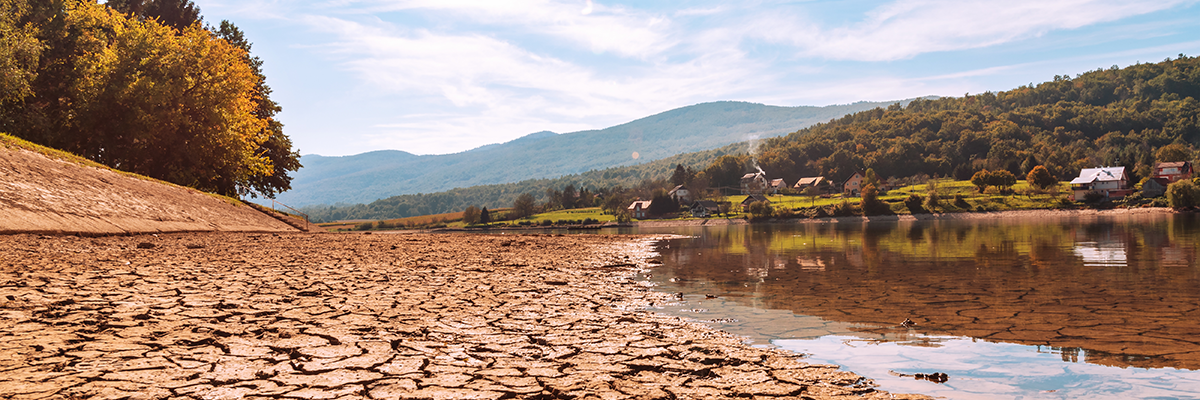In Defence of Lives and Livelihoods: Co-creating Pathways towards Peace and Prosperity for the Lake Chad Region (DEFENCE) (2021-25)
Working in areas of the Lake Chad Basin in Chad, Niger and Nigeria, that are affected by a nexus of conflict, poverty, environmental degradation and climate change, this project is researching and co-creating locally valid, locally owned and locally sustained peace and prosperity pathways that will serve as decision-support tools to foster sustainable and inclusive development planning in fragile environments. It is funded under a UKRI Future Leaders Fellowship won by Dr Uche Okpara.
Climate Smart Food Innovation using Plant and Seaweed Proteins from Upcycled Sources (IPSUS) (2022-2025)
Funded by the European Research Area Network (ERA-NET), the multidisciplinary IPSUS project aims to explore opportunities for using upcycled plant and seaweed proteins from materials that would otherwise contribute to the 1.6 billion tonnes of global food loss and waste annually. By reducing food waste and promoting sustainable protein sources, the project addresses critical aspects of climate change mitigation. Spanning six partner countries (UK, Italy, France, Romania, Turkey, Morocco), the project focuses on agronomic, biochemical, nutritional, and socio-economic dimensions of upcycled plant based food products from six protein-rich sources: pumpkin, hazelnut, grape, potato, brewers' spent grain, and seaweeds. Among the four NRI staff members involved in this project, Dr Mofa Islam from the Climate Change Research Group is responsible for the Work Package investigating consumer attitudes and behaviours as well as the regulatory and policy frameworks that can support the transition to upcycled plant-based proteins.
Creating and Implementing a Methodology to Select and Evaluate Agricultural Interventions against Climate Smart Outcomes (2020-23)
This work for the Syngenta Foundation constituted a desk review leading to elaboration and piloting of a tool for ex-ante assessment of proposed agricultural interventions in the Global South.
Independent Review of the CGIAR Research Programme on Climate Change, Agriculture and Food Security (CCAFS) (2020)
NRI provided the Team Leader and Subject Matter Specialist for this review designed to provide information on the Quality of Science and Effectiveness of CCAFS. See
https://iaes.cgiar.org/sites/default/files/pdf/CCAFS%20CRP%20Review%202020%20Report.pdf
Support to the Moroccan National Institute for Agronomic Research (INRA) on Climate Change (2020)
This FCDO-funded project aimed to identity capacity-building needs and form a basis for the development of a fuller project of support to INRA. Two senior NRI staff visited Morocco, holding meetings with INRA staff at HQ and running workshops for research staff at four regional centres, making recommendations for longer term training and capacity-building. Following Covid-related lockdowns in both UK and Morocco, a modified programme of support that could be delivered remotely was designed, approved and delivered, comprising training activities (virtual lectures and one-to-one support) in three areas: a) socio-economic aspects of climate change, particularly as they relate to smallholders, and the roles of agricultural research in climate adaptation; b) agri-climate modelling; and c) bioinformatics, a key skill gap for INRA for its work on the genomics of climate-resilient crops and climate-related plant diseases.
Climate Impacts Research Capacity and Leadership Enhancement Programme (CIRCLE) (2015-19)
NRI led the Quality Support Component of this FCDO-funded programme which supported 100 African early-career researchers in climate-related fields to spend a year in another African institution, identifying and contracting international specialist advisers to work with the Fellows, as well as facilitating workshops for Fellows, their supervisors and senior management of the participating African universities. NRI staff themselves served as specialist advisers to around 50 CIRCLE Fellows, working with Fellows from both agricultural science and social science backgrounds.
Monitoring and Evaluation of the Global Climate Change Alliance in Malawi (2015-19)
The Global Climate Change Alliance in Malawi was an EU-funded programme that aimed to 'contribute to the alleviation of poverty through enhancing the resilience of Malawian institutions and communities at national and local levels to climate change risks and impacts'. It comprised two key operational components:
- Mainstreaming climate change adaptation and mitigation in the irrigation sector through the Planning for Climate Change project.
- Increase in resilience of vulnerable communities in four southern districts through the Community Resilience to Climate Change project.
NRI, in partnership with a team from Chancellor College, Malawi, conducted independent programme-level Monitoring and Evaluation, generating and sharing evidence and learning in support of the GCCA programme objective.
Contributions to the Intergovernmental Panel on Climate Change (IPCC) (2004-2019)
NRI staff members have made a series of contributions to successive reports of the IPCC:
- As Lead Author for the chapter on Food, Fibre and Forest Products in the Fourth Assessment Report (2007)
- As Co-ordinating Lead Author for the chapter on Food Systems and Food Security, and for the chapter on Rural Areas, in the Fifth Assessment Report (2014).
- As Lead Author for the chapter on Risk Management and Decision Making in Relation to Sustainable Development in the Special Report on Climate Change and Land (2019),
- as well as roles as Contributing Authors in various other chapters of these reports.



